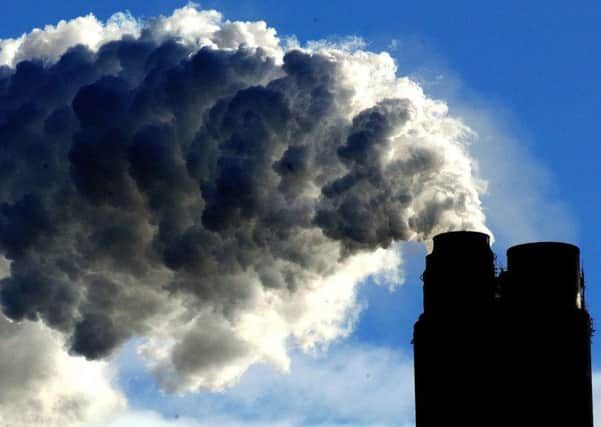‘Cut coal too fast and risk power cuts’ report warns


Energy Secretary Amber Rudd will declare today in a widely-anticipated speech that coal “is not the future” and it is imperative to build gas plants instead.
But a new report by the freemarket thinktank Centre for Policy Studies, says demand for electricity is set to outstrip reliable sources of power for the first time from early next year when coal-fired plants - including two in Yorkshire - close.
Advertisement
Hide AdAdvertisement
Hide AdEggborough power station, near Selby, is set to close with the loss of 240 jobs in March, the same month as Ferrybridge power station, near Castleford. The Longannet plant in Fife will also close in March, after being pronounced “uneconomic.”
A new report, The Great Green Hangover, published today by the Centre for Policy Studies, argues that decades of energy policy mismanagement will leave the country with 52,360MW of “dispatchable capacity”, from coal, gas and nuclear, while winter demand is forecast to be 54,200MW. It says: “Action must be taken now if the lights are to be kept on.”
It calls for the abandonment of carbon taxes, which the report says are three times higher in the UK than the rest of Europe, in order to prevent the closure of more power plants. It says the taxes have also kept prices “unsustainably high” for struggling energy-intensive industries like steel.
Research fellow from the CPS Tony Lodge said Britain had lost over 20 per cent of its dispatchable electricity generating capacity in the last five years as power plants have closed with no equivalent replacement. Earlier this month National Grid had to use emergency measures for the first time to call on industry to reduce its power usage in order to avoid shortages.
Advertisement
Hide AdAdvertisement
Hide AdMr Lodge said: “If the Government is to force coal-powered stations to close early then the Government must clearly set out how it will replace this lost capacity on a plant by plant basis so to avoid any energy interruptions.
“There’s proposals to build (a gas-fired) one at Carrington, near Manchester, but it isn’t even built yet. At the moment they are closing earlier than expected, without effective replacements ready to start.”
Environmentalists have backed reports that the Government will announce the closure of coal power plants by 2023. But they have attacked Ministers for stopping support for the cheapest low-carbon technologies like wind while backing more expensive nuclear. In her speech Ms Rudd will say: “Frankly, it cannot be satisfactory for an advanced economy like the UK to be relying on polluting, carbon-intensive 50-year-old coal-fired power stations. Let me be clear: this is not the future.”
She will also say: “One of the greatest and most cost-effective contributions we can make to emission reductions in electricity is by replacing coal-fired power stations with gas. In the next 10 years, it’s imperative that we get new gas-fired power stations built.”
Advertisement
Hide AdAdvertisement
Hide AdA spokesman for DECC said: “Keeping the lights on is non-negotiable. National Grid has the right tools in place to manage the system this winter and we will ensure that they continue to do so in future.
“Our number one priority is to ensure that hardworking families and businesses have access to secure, affordable energy supplies they can rely on.
“In the longer term we are investing in infrastructure and low-carbon energy supplies, such as nuclear and shale gas, to improve energy security for future generations.”